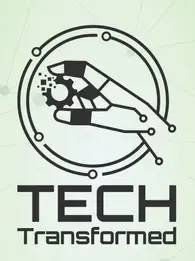
After a year of immense technological innovation, the US tech sector finds itself at the forefront of an increasingly complex dilemma where politics hinder decisive regulatory action on technology.
From the sudden explosion of OpenAI’s ChatGPT to the dramatic collapse of cryptocurrency exchange FTX, the rapid transformation of the tech sector has brought technological innovation to the doorstep of the average US citizen – all be it with little governmental intervention.
While this unregulated technological advancement has harboured new and exciting technologies, it has also introduced new challenges for almost every aspect of US society.
Whether it’s the ever-evolving cyber risk landscape, the increasing concern for data privacy, or the widening skills gap, each problem caused by technology extends far beyond the tech industry that created it.
Many have called for the US government to intervene, but so far it has been unable to introduce concrete legislation to control the influence of tech innovators.
With the February House of Representatives elections fast approaching, however, the discussion of regulatory action on technology has been reignited once again. Will the US government finally rein in the tech industry?
A history of US regulatory failure
Although the US government has demonstrated its interest in introducing legislation that limits the power of the tech sector, it has so far failed to take definitive action due to the widening political divide in Washington.
Just last year, governmental officials attempted to introduce new initiatives towards antitrust regulation, data protection and online child protections for tech companies, but discussions quickly broke down.
When the government does enforce regulations against tech companies, the process of which it does so often involves long periods of documentation, deposition taking and political bickering.
The Department Department has spent years investigating whether Google is abusing its dominance of ad technology to obliterate competitors, but has failed to make a final decision.
Once it makes a decision, the case could take several years to move through the courts. In the meantime, the ad technology under investigation will likely become obsolete, and the would-be rivals will have left the market.
New Pressures from Europe
While the US fails to introduce definitive measures to control the tech sector’s growing influence on US society, the EU has already announced new legislation that effectively regulates global tech innovators.
The European parliament’s Digital Markets Act, for instance, prevents large tech companies from taking hold of the market by obligating them to comply with a set of antitrust and online content laws.
The law has forced tech behemoths like Apple to change the way their company operates by putting restrictions on technology so that large corporations cannot dominate the market.
As well as this legislation, this year the EU is also set to introduce the world’s first AI act which will bring new, risk-based scoring systems to prohibit intrusive AI technologies and closely monitor others.
To read more about AI, visit or dedicated AI in the Enterprise Page.
What makes this concrete action possible is the political agreement between countries in the EU which gives the union total control over the technology being used within its continent.
As each piece of legislation introduced by the EU takes hold of the tech companies operating in the continent, American lawmakers will likely watch closely to see whether US enterprises comply with these regulations.
Once this happens, the US government will face being pressured to introduce similar laws and finally end the longstanding chokehold big tech companies have on US society.












